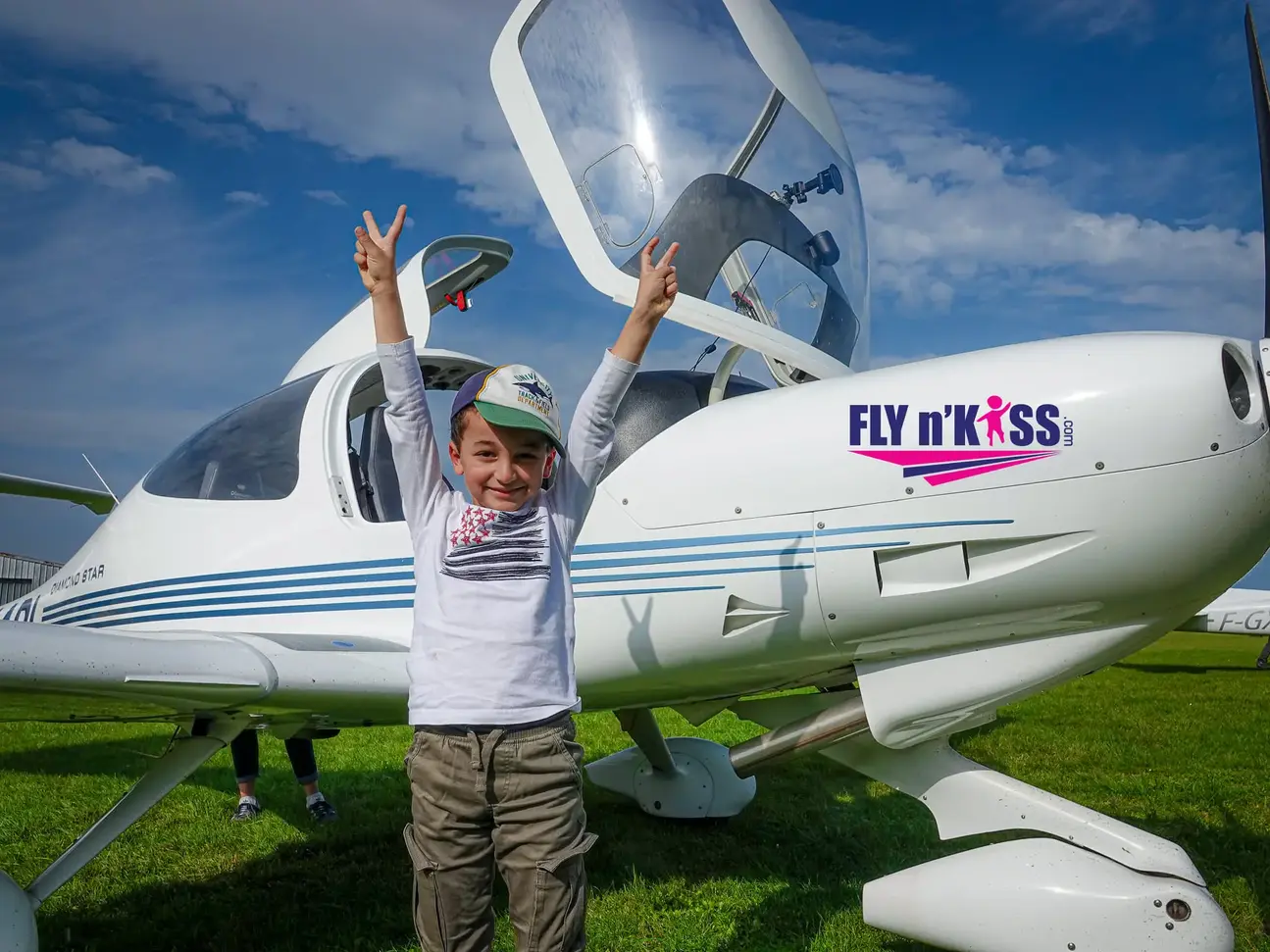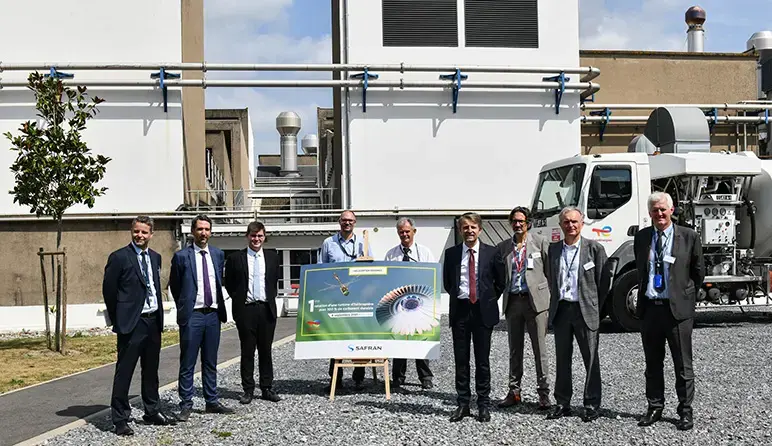Committed to reducing their carbon footprint, the two companies recently signed a strategic partnership agreement aimed at accelerating the reduction of CO2 emissions from the aviation industry. The short-term goal of this partnership is to make today’s engines compatible with an incorporation rate of up to 100% SAF and, in the longer term, to optimise the energy and environmental performance of engine/fuel combinations.
Safran: a key player in sustainable aviation working alongside TotalEnergies
“Safran is working hard to reduce its environmental footprint, both in terms of its operations and its products," explains Prospective Manager Nicolas Jeuland, in charge of the sustainable fuel roadmap at Safran. “Our role is not only to set an example se we can bring all our stakeholders onboard, but also to remove the technological barriers that could slow down the development of SAFs.” Today, all aircraft are compatible with SAFs at a 50% incorporation rate. Safran and TotalEnergies intend to do even better and are working hand in hand to raise the bar and achieve a 100% incorporation rate in aircraft engines. It is estimated that when incorporated at the ultimate rate (100%), SAF would reduce CO2 emissions by up to 90%, which would fully meet the joint decarbonisation objectives of both companies.
We are pleased to be partnering with Safran to help meet the challenge of decarbonising the aviation sector. This strategic alliance contributes to the emergence of a French sustainable aviation fuel industry, and to the electrification of aeronautics. TotalEnergies is firmly committed to reducing its own carbon emissions and to helping its customers do the same by delivering the innovative and smart technological solutions they need to achieve this goal. We are convinced that cooperation between all players in the aviation industry is vital to achieve the objectives of the energy transition towards carbon neutrality.

Thinking ahead of sustainable fuel regulations
However, this highly ambitious R&D project is for the long term. For the time being, SAFs account for only about 0.01% of fuel consumption. "Safran's ambition is to exceed 35% incorporation for its engine acceptance tests by 2025. But beyond Safran’s own short-term timeframe, we want to be ready for the broader global deployment of these sustainable fuels and prepare our future products for incorporation rates approximating 100%. In addition, local regulations will evolve at different paces, and some countries will in all likelihood impose quite high rates relatively quickly, such as Sweden where the use of aviation for travel is very widespread and difficult to replace.”
Testing engines with sustainable fuels at Safran
Alongside this R&D project, TotalEnergies is supplying Safran with SAF for these engine tests at its facilities in France. An initial success was scored in early September when a Malika 2 helicopter engine was rotated with 100% SAF from used cooking oil (HEFA - Hydroprocessed Esters and Fatty Acids. For more information on SAFs, see this article). "This achievement means that we can plan test flight campaigns in the coming months," says Nicolas Jeuland. A first operational step towards the development of SAFs in the aeronautics industry!

What roadmap for SAF in Europe?
Some EU countries have already developed roadmaps for incorporating SAFs in the near future. All these rates will be harmonised by Fit for 55, the European regulatory proposals aimed at achieving carbon neutrality by 2050 and meeting the greenhouse gas emission reduction target of minus 55% in 2030 compared to 1990. SAFs are part of this effort: the incorporation rate will be progressive, rising from 2% in 2025 to 20% in 2035 and 63% in 2050.


